Senate Takes Long Look at STELAR
The Senate took a wide look and a deep dive into the issues surrounding STELAR renewal Wednesday (Oct. 23) in a hearing in the Senate Commerce Committee. Cable operators, who want the law renewed, had to be pleased by the first bit of info that surfaced.
The chairman of the committee, Sen. Roger Wicker (R-Miss.), said that, in his opinion, STELAR remained a critical law for preserving access to video services for those rural residents and others who find themselves on the wrong side of the digital divide. He also prefaced the hearing by saying it came as the "the committee was preparing to reauthorize STELAR."
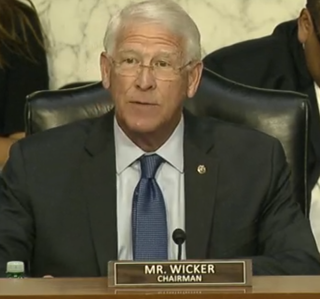
STELAR is the latest name for the bill/law that dates from 1988 and that established the compulsory license that allows satellite operators to import distant network TV station signals into local markets where viewers lack access to them for a variety of reasons.
It must be renewed every five years or it expires, and along with it the requirement that broadcasters and MVPDs negotiate retransmission consent deals in good faith.
Wicker pointed to the tailgaters, long-haul truckers, RV users and others who would lost access to distant signals if STELAR sunset, with no alternative. He said he understood that many thought the law, which was adopted to help grow the then-nascent satellite industry, had outlived its usefulness, but he did not agree.
Ranking member Maria Cantwell (D-Wash.), appeared to be more in that latter camp.
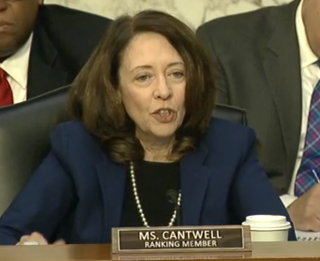
Broadcasters argue the compulsory license should sunset because it allows satellite carriers--specifically DirecTV--to avoid the expense of carrying local stations in the smallest markets, instead importing signals from L.A. and New York. They argue localism is the key and the compulsory license is a way to lock some communities out.
Multichannel Newsletter
The smarter way to stay on top of the multichannel video marketplace. Sign up below.
Cantwell said the STELAR law was about spurring competition when it was lacking, while today there were a host of video options, while the two satellite TV providers--Dish and DirecTV--who benefited from the compulsory license--are now "mature competitors" in a marketplace with millions of customers.
And while there is little time to use STELAR as a vehicle for major reforms, as MVPDs and some others would like, hearing witnesses and legislators highlighted some areas they would like to see addressed if the law does become such a vehicle:
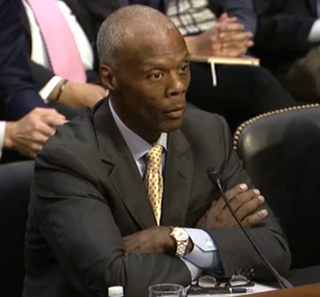
1. Indy pitch. Witness J.C. Watts, a former member of Congress and currently chairman of the Black News Channel, asked that the current set-aside for noncommercial channels on satellite in the Telecommunications Act be modified to include independent commercial programmers, like his channel, that provide original programming of an informational and educational nature.
2. Bill Shock. Witness Jonathan Schwantes, senior policy counsel for Consumer Reports, backed adding Massachusetts Democratic Senator Ed Markey's True Fees Act to the STELAR bill, a point seconded by Sen. Markey during the hearing. The bill would provide MVPDs to disclose true fees to customers, not just the introductory prices that will go up when those fees are added. The fee most senators were talking about at the hearing was the one MVPDS are starting to break out on their bills as TV fees tied to the retrans fees they must pay, though they are not, for competitive reasons, broken out by individual channels, which Schwantes said would be more transparent.
3. Taking Care of the orphans. A number of legislators raised the problem of orphan counties including Markey and and Sens. Deb Fischer (R-Neb.) and Tammy Baldwin (D-Wisc.). That is when viewers on a state border are in the Nielsen market of a neighboring state and so are getting the network affiliate from that state rather than their own. Baldwin, with tongue only slightly in cheek, called it the closest thing to a political crisis when getting angry calls from folks in Wisconsin who can't get Green Bay Packers games because their Minnesota affiliate is carrying the Vikings.
As was to be expected the broadcast and satellite witnesses sparred over who was to blame for markets where local signals were not being delivered, either by broadcasters because of their power limitations, or by satellite operators because they did not choose to deliver them, at least via their satellites.
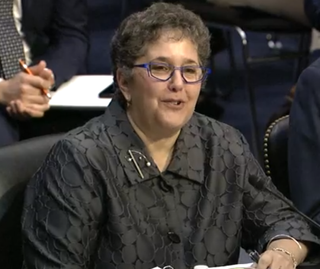
Emily Barr, president of Graham Media Group and chairwoman of the National Association of Broadcasters TV Board, said that AT&T's DirecTV "continues to offer only out-of-town signals to viewers in 12 markets simply because it is more profitable for the company," pointing out that Dish serves those smallest markets.
NAB wants STELAR to sunset so that MVPDs will have to pay market rates for distant signals and won't be able to avoid carrying local signals by importing distant ones without having to negotiate to do so.
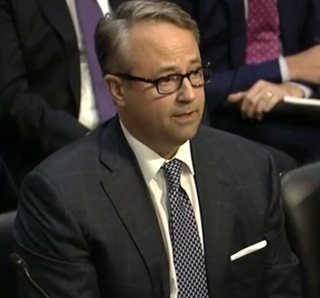
AT&T's SVP of content and programming Robert Thune said that non carriage in the 12 markets is not accurate. He said DirecTV does supply local TV stations in all 210 markets, but that in those 12 it provides a free antenna, a discount on the bill and a way to integrate those stations "seamlessly" into the viewer experience.
Among the other highlights of the hearing were a testy Sen. John Tester (D-Mont.), whose state has 2 of the 12 markets where DirecTV does not deliver local stations. He pressed Thune on why Dish could provide the signals via satellite but not AT&T and asked him to commit to do so. Thune said they already did, and pointed to the antenna and seamless integration, but Tester asked why DirecTV didn't do it via satellite as they did at his house in Montana, which was "pretty damn remote."
But Tester was not assuaged: "No you don't," he said. Thune said if not, the fault was the broadcasters, who didn't deliver a clear signal and didn't invest in the technology to deliver one, requiring AT&T to import a distant one.
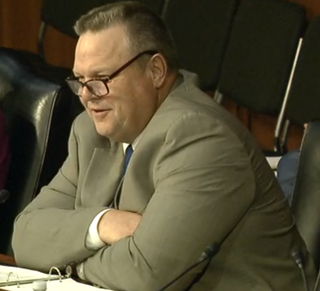
Tester said that he thought it was a "lack of desire on AT&T's part. "I'm not sure what the hell we can do about it on this panel," he said, "but maybe we can do something about it, and I hope we do."
Tester had another bone to pick with AT&T. He said that he has been watching the World Series in Washington, but that that Fox station is blacked out on his farm at home--his high-speed internet isn't good enough to get it on his iPad he added. He asked why the station was blacked out. Thune said that if that was the case, it was the station's fault for not negotiating at a fair price. Tester said AT&T was not exactly "small spuds." He suggested AT&T was the big dog in the fight and likely the one with the "take it or leave it" table talk.
Thune said that, as a party to those negotiations, it is the broadcasters who "come to us with a gun to our head telling us: 'you are going to take this price,' and when we say it is too high, they say: "Thank you for your past business, and that is an exact quote, and they threaten to pull the signal away and in some cases do."
Barr said that has not been her experience. She said she had never experienced a blackout, but that AT&T appeared to be promoting blackouts in order to push for retrans reform in STELAR. Thune flatly denied it.
Tester pointed out that he was paying for a station he wasn't getting, which "kind of chaps my butt." Wicker, to accompanying chuckles, said the committee would "make note of that."
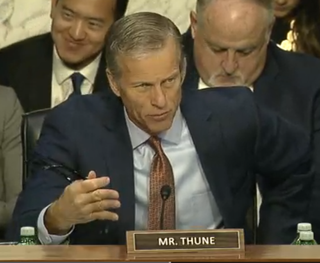
In other, and related STELAR news, Sen. John Thune (R-S.D.), former chairman of the committee, said at the hearing that he would not be reintroducing his Local Choice Act this time around, which he tried to make part of the the compulsory license renewal legislation five years ago. The act would have required broadcasters to sell their signals directly to consumers, who could choose not to take them. The FCC would be a facilitator of that direct negotiation and could not mark up the price. But it would also not be required to carry TV station signals subs didn't pay for.
Contributing editor John Eggerton has been an editor and/or writer on media regulation, legislation and policy for over four decades, including covering the FCC, FTC, Congress, the major media trade associations, and the federal courts. In addition to Multichannel News and Broadcasting + Cable, his work has appeared in Radio World, TV Technology, TV Fax, This Week in Consumer Electronics, Variety and the Encyclopedia Britannica.

